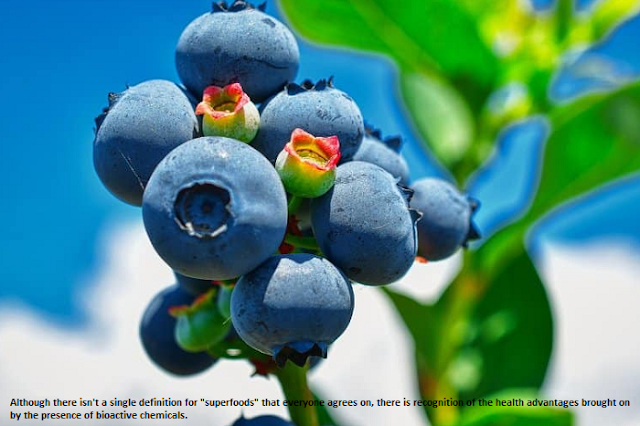University of New South Wales, cited
Researchers doubt if so-called "superfoods" are as healthy as they are promoted to be and, if they are, what kind of diet should include them in.
"An apple a day keeps the doctor away," is a proverb that is well known to all.
This statement implies that, long before the term "superfood" gained popularity, apples may have been the first food to be classified in this way.
But these days, a new superfood is popular on social media every week and promises to have amazing health advantages. Quinoa, chia seeds, and kale have all recently become popular.
The most crucial factor, however, is if consuming kale four times a week actually supports your bone health. Or did someone just execute the most successful marketing strategy ever?
Associate Professor Jayashree Arcot, a food and nutrition expert from the UNSW School of Chemical Engineering, claims that "lifestyle gurus" occasionally use the phrase "super-foods" carelessly. Although there isn't a single definition for "superfoods," there is recognition of the health advantages provided by the bioactive ingredients and chemicals they contain.
Scientifically speaking, there is no such thing as a super food; rather, those terms are used to describe nutrient-rich foods or substances with attributes that may have an impact on health, but with a label, according to Associate Professor Arcot.
"Unfortunately, the word can encourage people to believe that some foods have amazing nutritional and health benefits and that eating them will cure all of their health problems.
"We do know that some foods are better for us than others, even though there is no one food group that contains the key to excellent health advantages. Naturally, when we pay more attention to taking care of our health, we start to pay more attention to what we consume.
"Food by itself cannot solve health problems, but it can contribute to a comprehensive therapy strategy. Eating a superfood like blueberries won't help you lose weight if your purpose is to do so.
But for it to have any sort of health impact, you need to discover the appropriate balance of these foods and eat them in moderation.
Not everyone considers superfoods to be healthy.
Let's go back five to ten years to when the phrase "functional foods" was in use in the food and health business before the term "superfoods" gained popularity.
Foods that are useful physiologically and are expected to lower the risk of disease development as a result of the addition or subtraction of specific nutrients are referred to as functional foods.
Later, the phrase "superfoods" was used to refer to foods having specific health advantages. But according to A/Prof. Arcot, all foods can be categorised as functional as they all have an impact on the body in some way.
We know that consuming foods strong in vitamin A is beneficial for maintaining the health of our eyes, and that drinking milk, which contains high concentrations of calcium, is fantastic for preserving the strength of our bones and teeth.
On the one hand, fatty foods are typically avoided since they can raise cholesterol. But given that there are also beneficial fats, such as avocado and chia seeds, which are acclaimed as superfoods, this would become crucial for someone who is already at high risk.
Kale is possibly one of the foods that is mentioned the most often when superfoods are promoted. While many studies have shown that kale has antioxidant and anticarcinogenic potential, more research is still needed before it can be said that kale has more health benefits than other cruciferous vegetables like cauliflower.
Nobody will warn you that eating kale regularly is unhealthy if you start doing so. According to A/Prof. Arcot, "Unless you're someone who is predisposed to kidney stones, for example, you're definitely eating too much oxalates—a substance found in leafy vegetables when it's advisable to have less of it in your diet.
Therefore, there isn't a method that works for everyone.
Superfoods may still be able to help.
 |
| Although there isn't a single definition for "superfoods" that everyone agrees on, there is recognition of the health advantages brought on by the presence of bioactive chemicals. |

Click Next Article (4 Left to get CODE)
Post a Comment